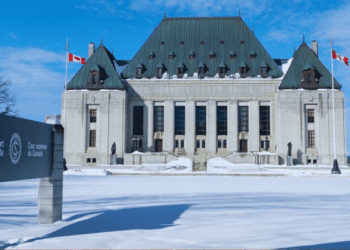 We need to reimagine our approach to big data to address communicable and non-communicable diseases, writes Tarun Katapally.
We need to reimagine our approach to big data to address communicable and non-communicable diseases, writes Tarun Katapally.
By Tarun Katapally, April 8, 2021
The COVID-19 pandemic has left us catching our breath, literally as a society suffering from debilitating effects of the virus, as well as figuratively as health systems are barely able to cope with the exacerbation of existing public health problems. Our health systems weren’t ready for the impact of this pandemic, just as they weren’t innovating to address longstanding endemics like mental illness, and resurgent epidemics such as obesity. The stark reality is that this pandemic has heightened the negative impact of existing endemics and re-emerging epidemics.
In the understandable clamor of countries eager for vaccines, the inescapable politics of mask mandates, and the rightful focus on the depleted global economy, we aren’t asking ourselves a basic question – why weren’t we better prepared for this pandemic? Living in a globalized world, global health is a local issue. Even if this self-evident fact escapes public policy and national security calculations, what should disappoint us is the inability of our advanced western health systems to respond rapidly to an existential threat, which could have been far worse. Perhaps that is not entirely fair as our 21st century health systems are restricted by 20th century public policy.
It is not difficult to imagine a pandemic scenario where the R0 of the virus from its inception is far higher. The fast-emerging virus variants that are more readily transmissible provide evidence for this eventuality. Looking back over 100 years to the 1918 influenza pandemic, it is also not difficult to fathom a reality where the mortality rate is much higher in general. Perhaps more scarily, what would be the effect on our society if the mortality rate were similar across all age cohorts, including children and the workforce? Without minimizing the devastating impact this pandemic has had on our way of life and the millions of preventable deaths globally, one could be forgiven to think that we might have escaped a truly global catastrophe this time round.
Hypothesizing that we got lucky, have we learned any lessons that would help us prepare not only for a potentially world-altering pandemic, but also the endemics and epidemics that we have learnt to live with? The disparate pandemic responses across the world make it evident that we are, at the moment, unable to effectively coordinate our strategies, policies, and activities – an undeniable truth that lays bear our human deficiencies despite the technological and scientific advances in the past decades.
This inability to coordinate is worsened by the silos of our health systems, which are designed to internalize errors rather that communicate and coordinate across jurisdictional boundaries – a losing formula especially with a highly transmissible virus that knows no boundaries. Nevertheless, there is a larger systemic issue at play that health systems need to come to terms with, if they intend to retain their current role; it is the fact that we live in a digital world, where we communicate with each other using sophisticated digital tools, and exchange big data constantly.
Coordination of public health response in a health crisis such as the COVID-19 pandemic – from triaging of potential cases within their homes and testing individuals at risk to addressing misinformation in real-time and tracking vaccine response – could be made highly efficient if health systems created digital pathways to directly engage citizens. Similarly, monitoring for illness, whether communicable or non-communicable, can be enabled by developing ethical engagement policies that emphasize citizen data sovereignty. Perhaps most importantly, in preparation for future crises, precision medicine tools using artificial intelligence can be used to not only prevent illness by taking each individual’s needs into consideration, but also respond rapidly to mitigate potential exacerbation of outbreaks.
Digital innovation in public health is lacking, which explains the dearth of application of big data to address population health crises. This reality has particular implications for health systems, which in general are rigid to using data that exist outside traditional health care settings. This reticence is perhaps warranted due to ethical issues related to data ownership and patient privacy. However, if innovations to leverage big data are not made a priority, health systems across the globe risk irrelevancy as big technology companies become more aggressive in cornering the health market. There is a need to reimagine our approach to big data to address communicable and non-communicable diseases. This approach can decentralize technology and revolutionize health systems and healthy public policy.
Big data, if thoughtfully processed, can offer solutions that are far more efficient and sustainable than human-designed policy, which at the moment is inadequate. Big data can also help prevent, mitigate, and manage health crises, and the consequences of not embracing this approach are far worse than the risks of innovating. If Amazon, Google or Facebook can predict our behaviours and purchasing or voting patterns, why can’t health systems predict our risks and address them in real-time?
Here is one prediction I hope doesn’t come true – Big Tech, which is already investing heavily in the health sector, will continue to innovate and develop artificial intelligence. This will continue to minimize the role of the public health sector, and if we do not take this challenge seriously, we will face with the reality of choosing between health care services that are provided by Big Tech and our own health systems. This scenario will test the mandate of universal health care.
Tarun Katapally is an associate professor in the Johnson Shoyama Graduate School of Public Policy at the University of Regina.




